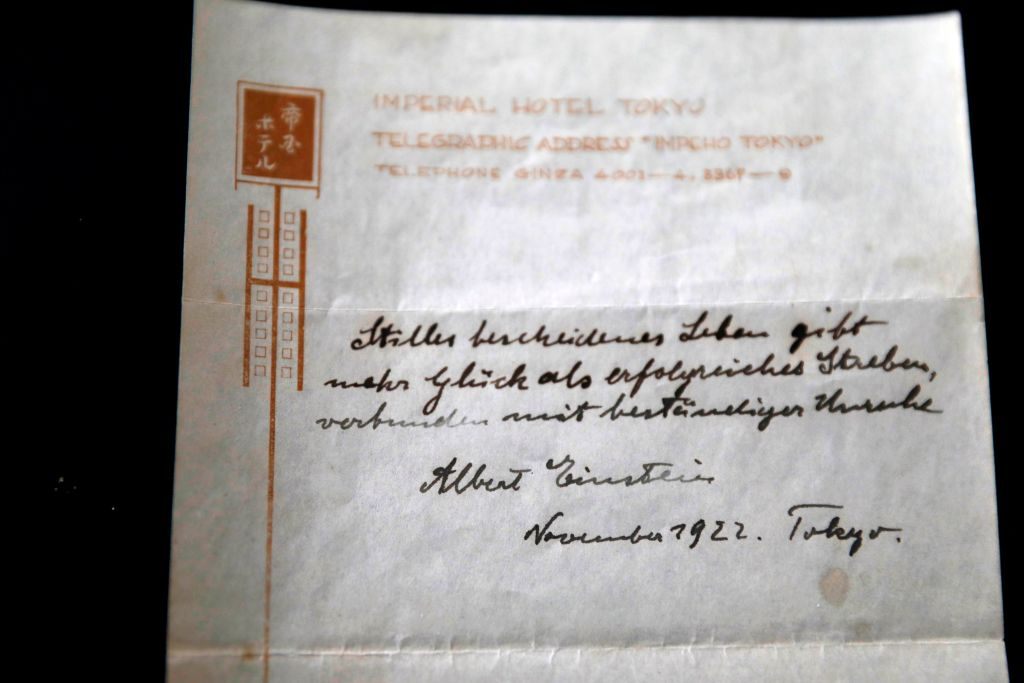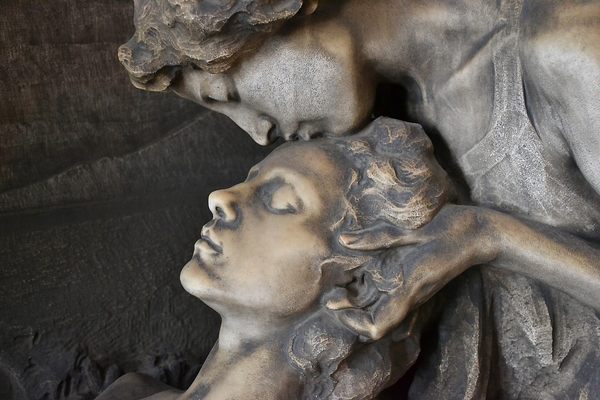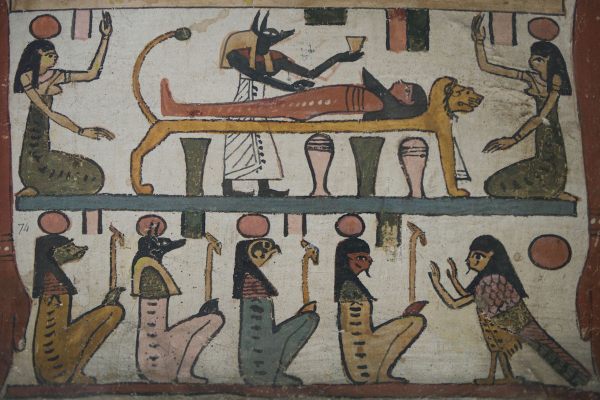Found: Handwritten Notes With Einstein’s Thoughts on a Good Life
The famous scientist gave two notes to a courier in lieu of a tip.

In 1922, Albert Einstein sat in a hotel room in Tokyo and wrote down two thoughts. “Wo ein Wille ist, da ist auch ein Weg”—where there’s a will, there’s a way—and “Stilles bescheidenes Leben gibt mehr Glueck als erfolgreiches Streben, verbunden mit bestaendiger Unruhe”—a quiet and modest life brings more joy than a pursuit of success bound with constant unrest.
He gave those two notes in lieu of a tip to a courier who had brought him a message, as the Japan Times reports. It may have been that he didn’t have any change; it may have been that the courier had refused money. But Einstein had the idea that these small slips of paper might be worth much more than a handful of change one day.
When he had arrived in Tokyo, the scientist had been met by crowds of fans. He had been traveling around the world, giving a series of lectures, in America, in British Palestine, and in southeast Asia. He was in Asia when he received a telegram informing him he had won a Nobel Prize. He must have understood what his growing fame could mean when he handed the courier these two notes.
One of the notes is one the stationery of the Imperial Hotel, Tokyo; the other is on a blank sheet of paper. They’re both being sold by an auction house in Israel, by the anonymous German owner. It’s unclear how these notes passed hands and reemerged now, but they’re small hints as to how Einstein treated people and thought of the world in terms of human experience, not just grand theories.


















Follow us on Twitter to get the latest on the world's hidden wonders.
Like us on Facebook to get the latest on the world's hidden wonders.
Follow us on Twitter Like us on Facebook